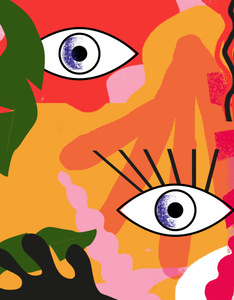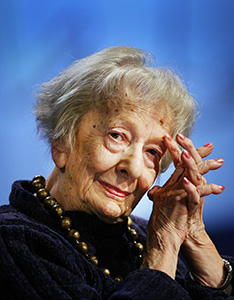The grand finale of the international cultural programme of the Polish Presidency in Brussels: world premiere of a composition by Aleksander Dębicz featuring Jakub Józef Orliński
The international cultural programme of the Polish Presidency will culminate in a closing gala held on June 24 at Flagey in Brussels. The highlight of the evening will be the world premiere of Unity, a composition written especially for the occasion by Aleksander Dębicz, one of the most versatile Polish pianists and composers of the young generation. Sharing the stage with a group of outstanding Polish instrumentalists will be world-renowned countertenor Jakub Józef Orliński – an artist who has appeared at many of the world’s leading opera stages and performed at the opening ceremony of the 2024 Summer Olympic Games in Paris.
This marks the conclusion of a six-month-long series of cultural events organized by the Adam Mickiewicz Institute in cooperation with the Ministry of Culture and National Heritage. As part of the programme, more than 200 events were held across 30 European countries, featuring nearly 900 artists.
— European culture cannot be discussed without mentioning Polish culture. This is the foundation on which we based our activities during the Polish Presidency of the Council of the European Union. It is also the message we wish to communicate at the end of this intense and inspiring six month period. The concept of a cultural community is not abstract. It is a very real area of cooperation, mutual understanding and dialogue that strengthens the European community – says Hanna Wróblewska, Minister of Culture and National Heritage.
— The scale of this initiative – involving dozens of partners across Europe, nearly 900 artists, and more than 200 events in 30 countries – is more than just a set of impressive figures. It clearly demonstrates that culture can be a powerful tool for building lasting international relationships. The international cultural programme of the Polish Presidency was not only an opportunity to showcase our potential, but also a test of our ability to operate within a new European cultural landscape – one rooted in partnership, trust, and shared responsibility. What we’ve taken from these six months goes far beyond organizational success: we’ve built new relationships, gained valuable experience in cross-border collaboration, and strengthened our belief that Poland can take the lead in shaping joint European cultural projects. For the Adam Mickiewicz Institute, this marks the beginning of a new chapter in European cooperation – one we are eager to pursue with ambition, creativity, and dedication – says Olga Wysocka, Director of the Adam Mickiewicz Institute.
— We have just completed six intense and inspiring months marked by the creative presence of Polish artists across Europe. It was an extraordinary journey – rich in encounters, inspiration, and new friendships – from which we emerge with a profound sense of pride and heartfelt gratitude. For the finale, we invited Aleksander Dębicz and Jakub Józef Orliński – two artists who have long been building bridges between tradition and modernity with remarkable consistency. Their collaborative projects embody the values of openness and mutual understanding – values that formed the very foundation of our programme. “Unity”, the composition created especially for this occasion, is a natural continuation and culmination of that vision – concludes Olga Brzezińska, Deputy Director of the Adam Mickiewicz Institute, responsible for the international cultural programme of the Polish Presidency.
The premiere piece Unity consists of seven movements, whose titles – Opening, Boundaries, A Dream, Problems, Hope, Seed, and North Star – reflect shared European challenges, hopes, and goals. The main theme of the composition draws inspiration from Beethoven’s Ode to Joy, which the composer himself describes as a symbol of hope for the continent.
The concert will feature outstanding Polish soloists who will perform together as the Unity Ensemble – a group created specifically for this occasion and co-creating this exceptional performance alongside the composer.
— I wanted to emphasize that unity in diversity is possible – a powerful message to mark the conclusion of the Polish Presidency of the Council of the European Union. It was important to me that the music be accessible to listeners while still conveying depth and complexity. I believe the style I call cinematic classical captures this balance perfectly. To reflect this diversity, I chose an unconventional ensemble – the piece was written for a group of soloists with whom I’ve collaborated on my last two albums: my original project Magnolia and #LetsBaRock, created in partnership with Jakub Józef Orliński. These are outstanding Polish musicians – truly among the very best. – said Aleksander Dębicz in an interview with Culture.pl.
Artists of the Unity Ensemble:
- Aleksander Dębicz – composer/pianist
- Konrad Gołda – french horn
- Wojciech Gumiński – double bass
- Łukasz Kuropaczewski – guitar
- Jakub Józef Orliński – countertenor
- Maxima Sophia Sitarz – violin
- Marcin Ułanowski – drums
- Małgorzata Wygoda – bassoon
- Marcin Zdunik – cello
- Michał Żak – flute/cimbalom
More information: www.iam.pl/en
Media contact:
Marta Skibska
e-mail: [email protected]
tel.: +48 609 092 838


